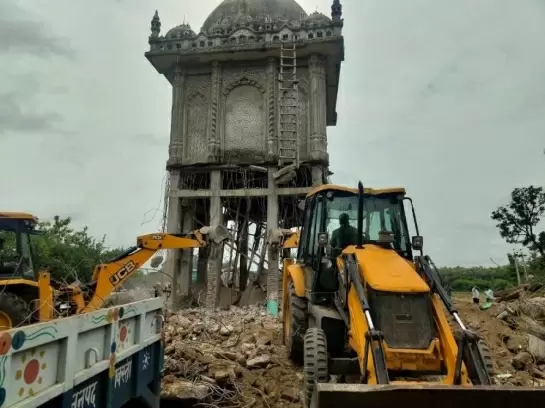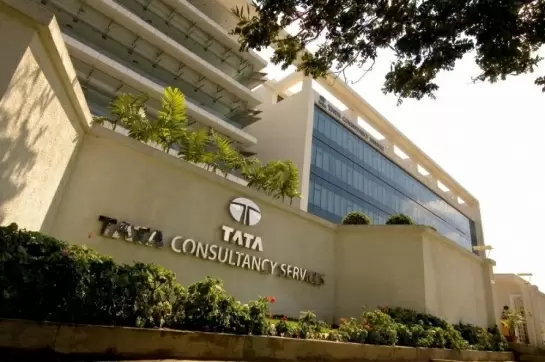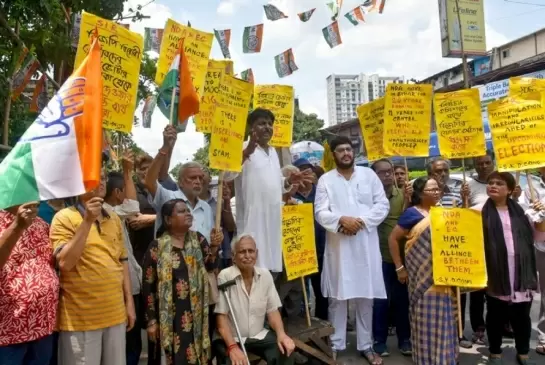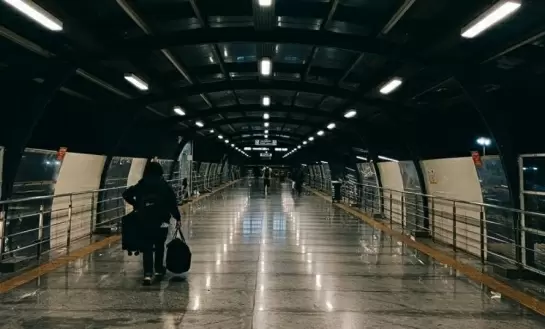Identification of hotspots, rate of doubling to determine lockdown timeline: ICMR
06-April-2020
Identification of hotspots will be a crucial step in determining lifting of the lockdown at the national and regional level, according to Raman R. Gangakhedkar, Head Epidemiology and Communicable Diseases at Indian Council of Medical Research (ICMR).
The first marker of control of virus spread is the rate of doubling time of number of patients turning COVID-19 positive. This formula may not be applicable at this point of time due to Markaz event. It may be applicable in last week of lockdown, he said.
Gangakhedkar while addressing a webinar said that India is not yet in community transmission stage. India remains in imported kind of disease at this stage and people coming in their contact are getting infected.
While the Markaz event has posed challenge and districts affected due to this are 200 but this would not be considered as community transmission.
Gangakhedkar who is also on the PM task force said that identifying hotspots (areas with higher intensity of COVID-19 positive patients) is ongoing activity, is one of the important steps in determining lifting of complete/partial lockdown at national/regional level. Citing concern, he said that the reason for worry is on availability of ventilators given the size of country.
He added that it is difficult to gauge the behavior of people in lockdown, given one of the rare steps taken to curtail the outbreak. Over next three week, the number of patient becoming COVID-19 positive would help to understand if the lockdown becomes national level or becomes regional level. 77 per cent of traffic has gone down in urban areas.
He emphasized that breaking the chain of transmission is of utmost importance. This can be done by following social distancing, ensuring people stay at home, physical distancing to be followed at work-place.
The Antibody test kit would be available by end of April following which testing would no longer be a big issue. Once the antibody kits are available, the test pace would also improve providing further clarity on the spread of the disease. This would be beneficial from manufacturing industry perspective as well.
He added that there are kits under development, wherein the test can be done in 15-20 minutes time. This test can be done easily outside. One of the research organizations has developed this kit and validation is in progress. If it works well, then this can be offered to any Indian company for supplying kits.
While the vaccines are under development, prevention is the priority till then. With the kind of strategy and steps followed in India, there is less probability of requirement of cure for treatment in this cycle as steps for prevention are followed more religiously, Gangakhedkar added.
On the transmission, he added that breaking the chain of transmission is of utmost importance. This can be done by following social distancing, ensuring people stay at home, physical distancing to be followed at work-place, among other measures.
In India, about 70,000 tests have been conducted so far. Gangakhedkar added that one needs to wait and watch if seasonality arrests spread of coronavirus. Also, current evidence doesn't indicate herd immunity is helping to arrest the outbreak.
The contact tracing is extremely strong to ensure detection and at times, the experience has been very hostile for people collecting samples/conducting test Responding to a question, he said that the study on BCG vaccine is also far-fetched approach.
On vaccines, he said that about 3 vaccines have moved to animal toxicity studies. The government has ordered for 5 million antibody test kits. They are equipped with 3.4 million PCR based antigen test as such. However, one needs to understand there is huge shortage of kits and other accessories to carry the test. There are at least 2-3 Indian manufacturers whose kits are approved for PCR test.
There are kits under development, wherein the test can be done in 15-20 mins time. These tests can be done easily outside. One research organization has developed this kit. Validation is in progress. If it works well, then this can be offered to any Indian company to supply the kits.
On the medication regime, he said that HCQS is less toxic than chloroquine phosphate. Evidence from laboratory studies indicates this works well against Coronavirus but outcome of human clinical trials on large scale needs to be seen.
The loss of smell can occur even in influenza cases, also, people have different sensitivity to different smell. Thus, the preference would be towards antibody test, which are far more objective, he added.
The current SOP is routine ICU management, and ventilator to be provided. In addition, HCQS and Azithromycin would continue to be provided as two drugs in first line of treatment. Booster Lopinavir is alternate regimen. If any effective drug comes up in recent studies, then ICMR would be quick to adopt it, Gangakhedkar added. IANS
Gifts That Work: Pluxee Study Unwraps the Future of Corporate Gifting
Hindu-Muslim DNA Same’: Shiv Sena (UBT) Heaps Praise on RSS Chief for Meeting Community Members
Chennai to Host Immersive Murder Mystery Dinner at Park Hyatt on August 1
Bharatsure Secures Rs 6 Crore, Offers Insurance to 1,500+ EV Stations Across India
14 Dead in Thai-Cambodia Clashes; Indian Tourists Urged to Avoid Border Provinces









